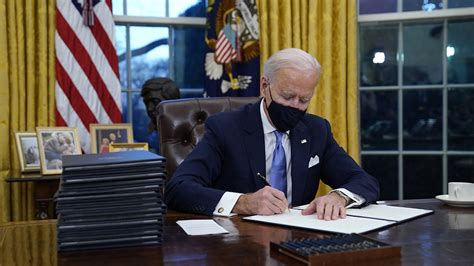US President Donald Trump wasted no time in making his mark as the 47th president of the United States by swiftly revoking numerous executive actions implemented by his predecessor, Joe Biden. The dramatic move unfolded at the Capital One Arena in Washington, DC, where Trump stood before a crowd and signed a series of executive orders that sent shockwaves through the political landscape.
Revoking Previous Policies
In a bold declaration, Trump announced to the audience his decision to overturn “nearly 80 destructive radical executive actions” put in place by the prior administration. This sweeping reversal set the stage for a new direction in governance under Trump’s leadership.
TikTok Ban Delayed
Among these changes was an executive order aimed at postponing the TikTok ban imposed by Biden’s team. By extending this deadline by 75 days, Trump sought to allow his administration ample time to assess and determine the most appropriate course of action regarding this contentious issue.
Exit from World Health Organisation
Another significant order signed by Trump involved initiating the process for the United States to withdraw from the World Health Organisation (WHO). This decision underscored a shift in US foreign policy priorities and commitments on global health matters.
National Energy Emergency Declared
In an unprecedented move, Trump declared a national energy emergency through an executive order with a focus on lowering energy costs for American citizens. By leveraging emergency powers, this measure aimed to boost domestic energy production and reduce reliance on external sources.
As discussions around these groundbreaking developments unfolded, experts weighed in on the potential implications of Trump’s swift policy decisions. Political analysts highlighted how such rapid reversals could lead to increased volatility and uncertainty within government operations.
The Paris Climate Accord Exit
One of the most controversial orders issued by President Trump was related to withdrawing from the Paris climate accord—a landmark international agreement aimed at combating global warming. By signaling America’s disengagement from this pact for a second time, Trump ignited fierce debates about environmental stewardship and climate change mitigation efforts.
During his inaugural address, Trump reiterated his stance on prioritizing traditional energy sources like oil and gas over renewable alternatives. His pledge to declare a national energy emergency resonated with supporters who championed greater energy independence and security for the nation.
Global Implications
The back-and-forth nature of US involvement in international agreements like the Paris accord raised concerns among world leaders about America’s commitment to addressing climate change collectively. With each administration implementing divergent policies on critical issues like environmental protection, questions arose about continuity and coherence in US foreign relations.
Joe Biden’s subsequent actions upon assuming office demonstrated a stark departure from Trump’s approach as he moved swiftly to rejoin the Paris climate accord—a symbolic gesture signaling America’s renewed dedication to global cooperation on environmental challenges.
In reflecting on these momentous shifts in policy direction at both domestic and international levels, it became evident that each presidential transition carried profound consequences for governance trajectories and diplomatic engagements worldwide.

